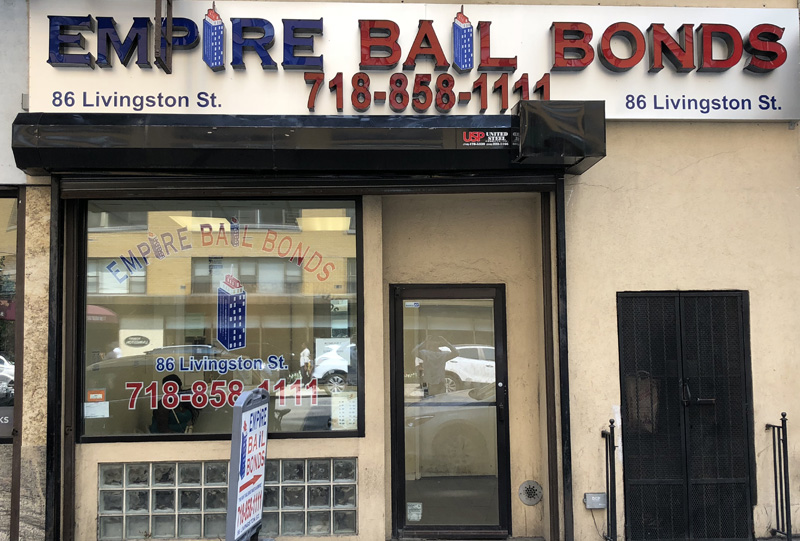Just How Bail Bonds Assist You Secure a Swift Launch
Bond bonds serve as a vital system for individuals navigating the complexities of the criminal justice system, using a pathway to reclaim freedom quickly complying with an arrest. By involving a bondsman and paying a portion of the complete bond amount, offenders can attend to both lawful responsibilities and individual responsibilities without the immediate problem of complete repayment.
Understanding Bail Bonds
Bond bonds work as an important device in the lawful system, providing people with a method to safeguard their launch from protection while awaiting test. This financial setup allows accuseds to upload bond, which is a set amount determined by the court, ensuring their look at future court days. When an offender can not afford the complete bond quantity, they may seek aid from a bail bond business, which commonly bills a fee, frequently around 10% of the overall bail quantity.
The bail bond operates as a guarantee to the court that the offender will follow all lawful commitments. The bail bond company is responsible for paying the full bond amount if the defendant falls short to show up in court. This risk incentivizes the firm to make certain that the defendant shows up for their scheduled hearings.
Comprehending the terms and conditions of a bail bond is important for any individual considering this choice. It is essential to recognize that bond bonds do not cover various other prices or lawful charges related to a test. Therefore, people must be educated concerning their legal rights and responsibilities when entering into a bail bond arrangement. This knowledge can considerably influence the end result of their lawful circumstance.
The Function of a Bondsman
Just how does a bondsman assist in the launch of offenders from custody? A bail bondsman, likewise called a bail bonds representative, plays a vital role in the bail process by giving the funds necessary to secure an accused's launch from jail - bail bonds licking county. When an offender can not pay for the complete bail quantity established by the court, the bail bondsman action in to cover this cost, normally charging a non-refundable costs, generally a percent of the overall bond
When the costs is paid, the bondsman protects the accused's release by authorizing a guaranty bond with the court. This bond ensures that the offender will certainly show up for all set up court hearings. If the defendant falls short to appear, the bail bondsman is responsible for paying the full bail amount to the court, which incentivizes the bail bondsman to make sure the defendant complies with their court obligations.
Additionally, bondsmen commonly assess the threat related to each situation, reviewing the defendant's history, ties to the area, and probability of appearing in court (bail bonds licking county). This threat evaluation notifies the terms of the bond and might consist of collateral requirements, additionally making sure the bail bondsman's financial investment is protected throughout the lawful process
Advantages of Using Bond Bonds
Utilizing bond bonds offers a number of advantages for offenders facing lawful obstacles. Among the key benefits is the economic relief it offers. When individuals are restrained, protecting their release usually needs a significant amount, which may be uncontrollable for lots of. Bond bonds allow accuseds to pay a portion of the overall bail quantity, normally around 10%, thus minimizing the prompt economic concern.

Additionally, dealing with a bail bondsman gives access to expert assistance with the complicated lawful landscape. Bondsmen are knowledgeable concerning the lawful system and can supply beneficial suggestions, ensuring offenders comprehend their rights and duties. This expert support can be critical in safeguarding a desirable result in court.
Lastly, using a bail bond can assist maintain a defendant's public image and work status, which can be detrimentally impacted by extended apprehension. Overall, the advantages of bond bonds expand past monetary factors to consider, advertising stability during a tough time.
The Bail Process Explained
Recognizing the bail procedure is important for anyone navigating the intricacies of the legal system. The bond procedure begins after an individual is arrested and brought previously a judge. During the preliminary appearance, the court identifies whether bond is applicable and sets the quantity based upon the severity of the fees, the defendant's criminal background, and flight danger.
As what's a bail bond soon as bond is established, the accused has several options for securing their launch. They can pay the full bond amount in cash money to the court, which is reimbursed find more info upon the conclusion of the situation, gave all problems are met. Alternatively, numerous people opt to utilize a bail bond service. In the defendant, this case or a co-signer pays a non-refundable cost, typically 10% of the complete bond quantity, to the bondsman, that after that covers the complete bond.
Upon settlement, the bondsman files needed documents, and the offender is launched from guardianship. It is crucial to comprehend the duties entailed, consisting of going to all court hearings and following any type of conditions set by the court, as failure to do so can cause a loss of the bond and added legal consequences.
Usual Mistaken Beliefs Concerning Bail

One more common mistaken belief is that bail amounts are widely set and unchangeable. In fact, courts have discernment in identifying bond amounts based upon different aspects, including the nature of the crime, the defendant's criminal background, and flight threat. Additionally, numerous believe that only wealthy people can manage bond, forgeting the existence of bail bonds, which offer an even more available financial service.
Some also assume that bond is a penalty, not comprehending that it serves as a device to guarantee accuseds stand for their court dates while maintaining their liberty during the lawful procedure. Lots of individuals are unaware that bail is not a right; it can be denied under specific conditions, especially in major crimes or repeat offenses. Clearness on these misunderstandings is necessary for informed decisions pertaining to bond and the general legal procedure
Conclusion

When an accused can not manage the complete bond amount, they might seek assistance from a bail bond firm, which commonly charges a fee, usually around 10% of the complete bond quantity.
If the offender falls short to appear in court, the bail bond firm is liable for paying the full bond amount. A bondsman, also recognized as a bond bonds agent, plays an essential duty in the bond procedure by providing the economic resources needed to secure an offender's launch from prison. Bond bonds permit defendants to pay a fraction of the overall bond amount, typically around 10%, consequently minimizing the prompt monetary worry.
In this case, the accused or a co-signer pays a non-refundable cost, generally 10% of the complete bond amount, to the bond bondsman, who then covers the full bond.